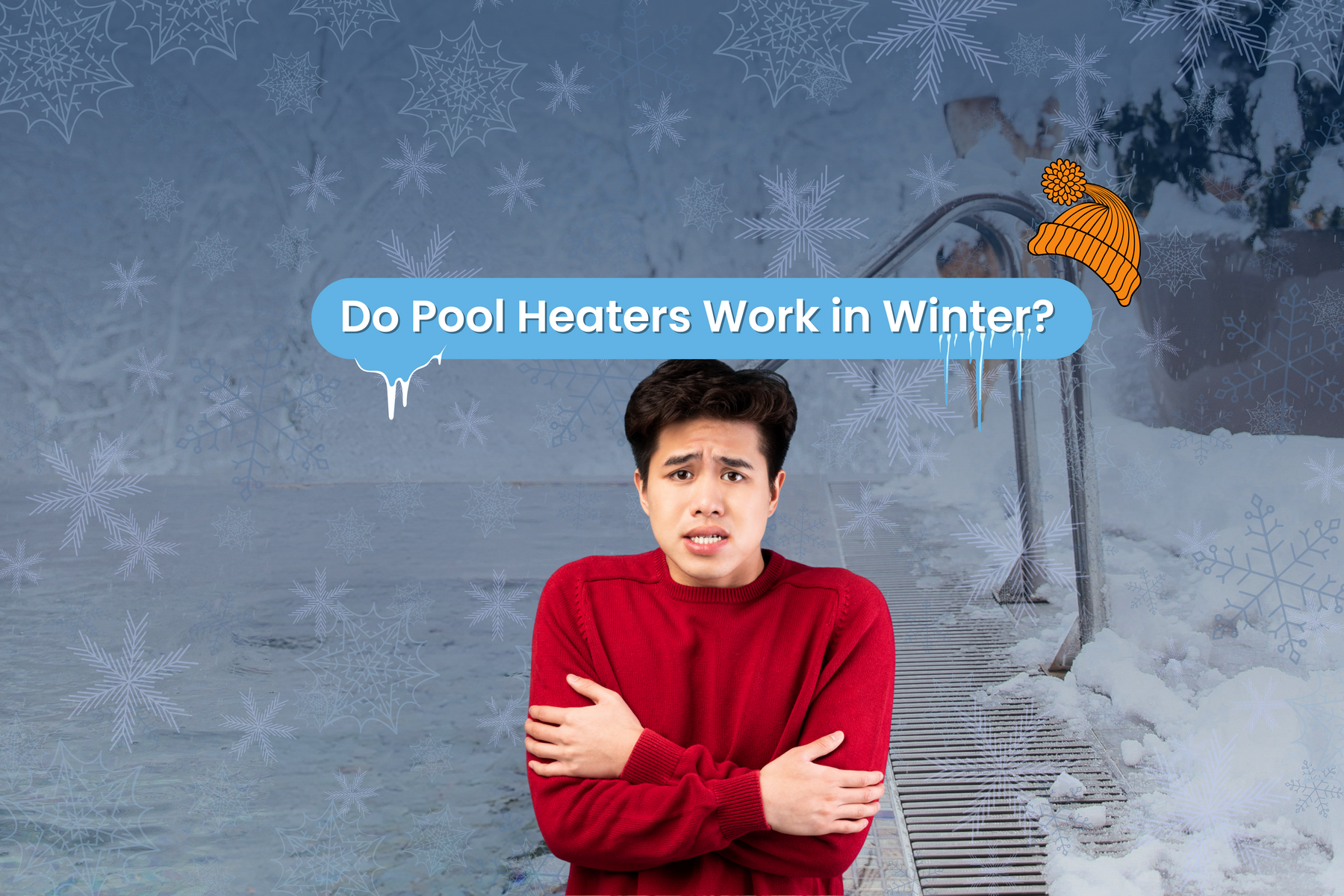
Do Pool Heaters Work in Winter?
Understanding Different Pool Heater Types for Winter Use
Short answer: Yes, pool heaters can work in winter - but not all are built for the chill! Gas and electric models hold up well, while heat pumps struggle when it gets too cold.
Not every heater handles cold the same. Some are ready to battle winter. Others prefer milder weather and call it quits when frost hits.
Here’s how each type stacks up.
Heat Pumps
Heat pumps are great across the board, and especially in places that are more mild in winter- like Florida and California. They pull heat from the air and work best when it’s above 50°F (10°C).
But once the air drops below that, they really slow down. They won't work in freezing temperatures.
They’re energy-efficient in mild seasons, but they’re not winter warriors.
Gas Heaters
Gas heaters, are the go-to for true North-American-cold weather.
Need a quick warm-up on a frosty morning? No problem.
They burn fuel to heat the water fast. This makes them perfect for winter use - but it can cost more to run them regularly.
Solar Heaters
Solar heaters sound great - free energy, right? They are... but only when the sun’s out and shining strong.
Winter doesn’t offer much sunlight in most places. If your backyard gets full sun all day, solar can help reduce heating costs.
But they’re not reliable in cold, cloudy climates. Best used as a backup, not your main heat source in winter.
Factors Affecting Winter Pool Heating Performance
Even with a powerful heater, the setup around it matters. If you don’t take these things into account, you’ll spend more money and still end up with chilly water.
Ambient Temperature and Climate
If you live in a warm state, heating your pool in winter isn’t too tough. A basic heater might be enough.
But in colder states, your heater works harder. The bigger the gap between outside air and your pool temp, the more effort - and energy - it takes.
Freezing climates require heaters that can deliver consistent heat no matter what. Gas or electric models tend to handle that best.
Pool Size and Usage
A small backyard plunge pool warms up faster than a huge lap pool.
The more water you have, the more heating power you need. If your pool is large or deep, go for a heater with a high BTU rating.
How often you use the pool also matters. Daily swimmers may want to keep a steady temp, while occasional users can heat it just before a swim.
Importance of Pool Covers and Insulation
Think of a pool cover as a big warm blanket. Without one, heat escapes fast - especially overnight.
Using a quality solar cover or thermal blanket can cut heat loss by 50% or more. That saves money and helps your heater work less.
Pool insulation, especially for above-ground pools, also makes a big difference. Wraps and foam panels help keep the heat in.
Benefits of Heating Your Pool Year-Round
Heating your pool in winter isn’t just about comfort. It actually adds value, supports your health, and gives you more use out of what you already own.
Extended Swimming Season
No more shutting down the pool when the weather cools.
With the right heater, you can swim in December just like you do in June. Whether it's a morning workout or weekend fun with the kids, you’re not limited by the seasons.
Health and Wellness Benefits
Swimming is great for your joints and muscles. Warm water helps with recovery, pain relief, and stress.
Winter workouts in the pool are gentle on your body and boost your mood. Even just relaxing in a heated pool or spa can do wonders when the temps drop.
Increased Property Value
A pool that works year-round stands out. Buyers love knowing they can use it even in winter.
It’s a smart investment. A heated pool isn’t just a feature - it’s a lifestyle bonus that adds to your home’s appeal.
Tips for Optimizing Winter Pool Heating
You don’t need to crank your heater nonstop. A few smart tricks will help you heat better, save energy, and keep your system running longer.
Running Heaters During Warmer Hours
Turn on your heater during the warmest part of the day - usually mid-afternoon.
Even if it’s just a few degrees warmer outside, it helps. Your heater won’t have to work as hard, and you’ll save on fuel or electricity.
Regular Maintenance and Winterization
Before winter hits, check your heater for wear and tear. Clean the filters, inspect the vents, and make sure nothing’s clogged.
Schedule yearly maintenance, especially for gas heaters. A quick checkup can prevent major repairs later.
If you're not using your pool, winterize the heater by draining water from the lines and protecting parts from freezing.
Preventing Freezing and Damage
Water expands when it freezes. If it’s left inside your heater, pipes or internal parts can crack. That’s expensive to fix.
If you plan to use your pool, keep water moving through the system. If not, fully drain the heater and lines.
Some heaters also have built-in freeze protection. Check your model's manual and use that feature if available.
With the right pool heater, a little planning, and smart usage, your pool can be just as inviting in winter as it is in summer. Whether you’re swimming laps or soaking under the stars, you don’t have to give it up when the cold hits.
Related reading:



Leave a comment